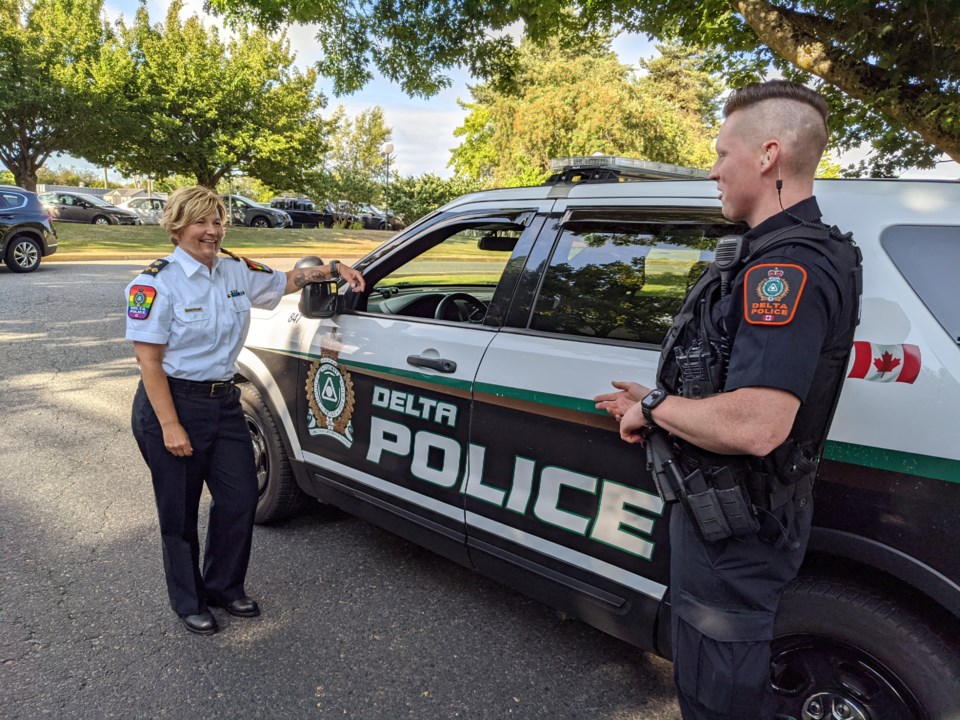When the first Delta Pride picnic took place in Ladner in 2018, the Delta Police Department (DPD) was there.
In fact, we were one of the first organizations to RSVP. But, as is the case with much of our work, it went unseen. Though uniformed members stopped by, you didn’t see the ones in plain clothes; ensuring everyone who attended felt safe to do so.
It is the same reason we flew the pride flag at all DPD buildings. We understand that Pride is not about “us” as an organization, but rather about “us” as a community, 24/7, 365.
We also didn’t say anything publically when all our active police officers participated in mandatory training, facilitated through Ally in Blue. This training taught our officers how to better foster communication and trust with the LGBTQ2S+ community, of which roughly one million Canadians identify as members.
Honestly, this type of training is overdue for many, beyond policing, and is just one example of the continuing training opportunities offered to DPD employees, because when you know better, you do better. And to better serve our diverse community, we must all continually improve ourselves through education, training, mindfulness, and lived experiences.
In 2020, the DPD recognized both the journey and goal of this work by formalizing the Equity, Diversity, and Inclusion Unit (EDIU). The EDIU’s objectives are to centralize, support, and advance a greater sense of belonging with and within the DPD, while enhancing existing relationships with our diverse community, and identifying who is missing from our table in these discussions.
“Do nothing about us, without us” was a common theme from the LGBTQ2S+ training, and as an organization, we intend to heed that advice from the bottom up and the top down.
Our Deputy Chief Const., Michelle Davey, is a member of both the LGBTQ2S+ and national police leadership communities.
At a recent B.C. First Responders’ Mental Health Committee Speaker’s Series she said belonging, within any group or organization, is key. Being yourself, however, is the hard part.
“It is easy to adapt our personalities to the culture to fit in. What is harder is staying true to ourselves and at the same time, adapting the culture to be more accepting of differences, to foster true belonging,” said Davey.
For allies, like me, Pride is also a great time to learn more about how we can be more supportive to the LGBTQ2S+ community beyond our immediate friends, family, and colleagues – like someone on a call for service who is struggling with coming out, or transitioning, or even dealing with microagressions.
As we all know, Pride welcomes vastly different people of every persuasion, all with one thing in common – a desire for everyone to be treated equally, regardless of sexuality, race, gender identity, religion, or any other label.
As police officers, this is what we signed up to do: help protect our community. As an organization, the DPD is proud to stand alongside the LGBTQ2S+ community, because we’re members, too.
Editor’s note: Const. Joel Thirsk is a police officer with the Delta Police Department, currently serving in the Equity, Diversity, and Inclusion Unit.



